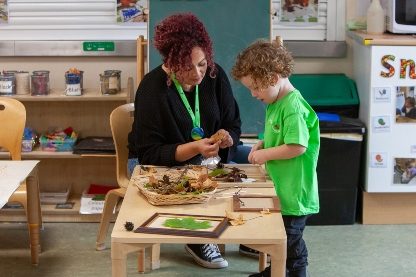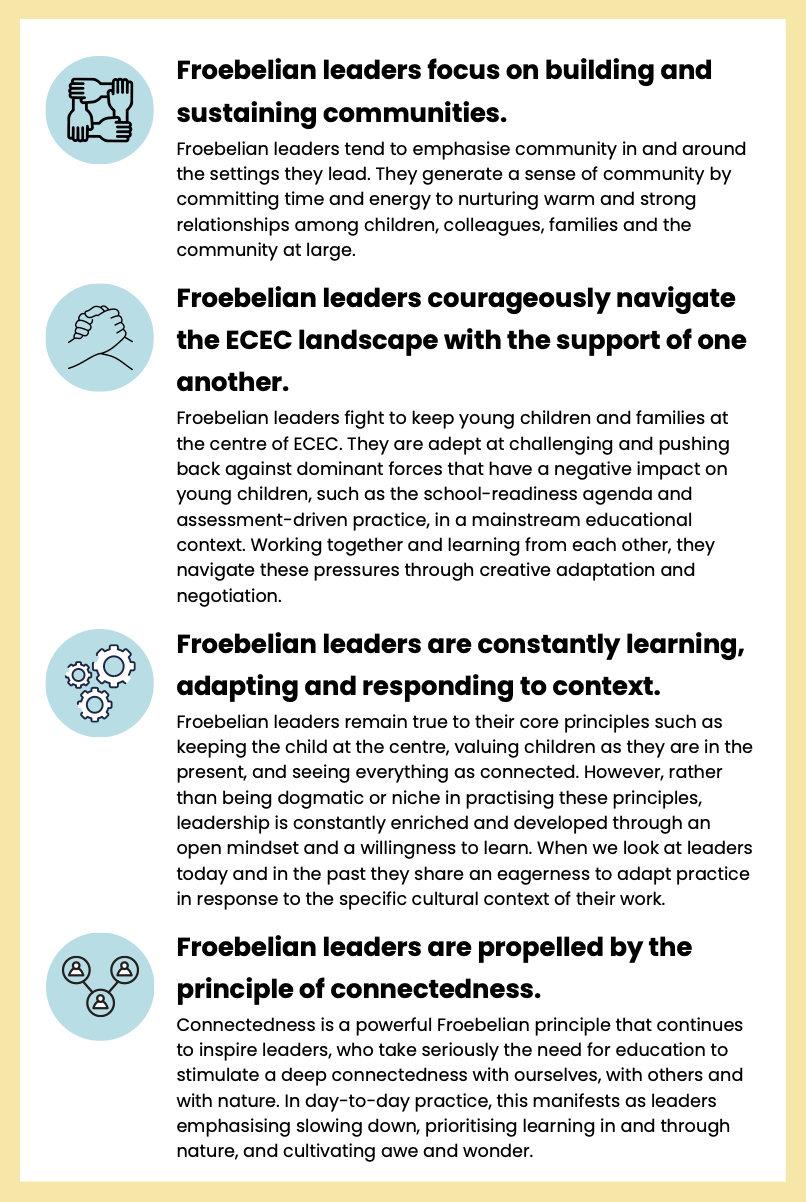This research project aimed to explore how Early Years leadership might look through a Froebelian lens.
- How might Froebelian leadership prioritise connection and unity?
- How might it place relationships at the centre of what it means to lead, so that a sense of belonging and community are core values for anyone in an EY leadership role?
"Given recent initiatives, such as the new National Professional Qualification in Early Years Leadership (NQPEYL), it is more urgent than ever that we understand what it means to lead in Early Years (EY). An understanding of EY-specific leadership would benefit greatly from engaging with the enduring legacy of Froebel."
Dr Mona Sakr, project lead
This research project aimed to:
- understand what Froebelian-inspired leadership might look and feel like
- open up collaborative reflective dialogues in the tradition of Froebelian practice that support deeper engagement and understanding across professionals around the topic of Early Years (EY) leadership.
- examine the intersection of Froebelian principles and EY leadership.

"Despite a growing understanding around the importance of leadership for children’s learning and wellbeing in EY, models of leadership in EY continue to be dominated by understandings of school-based leadership or even visions of leadership that emerge from other sectors, including private business (Nicholson et al., 2020)."
Dr Mona Sakr, project lead
"Reflecting on Froebelian principles prompts not only questions about our interactions with young children but also broader questions about the way we organise EY education, including contributions and enactments of leadership."
The project:
- systematically reviewed three bodies of literature in order to gather insights about EY leadership as seen through a Froebelian lens
- delivered a series of stand-alone online workshops for global EY leaders who identify as taking a Froebelian approach. At least 50 EY leaders participated across at least three online workshops, all of which were recorded, transcribed and thematically analysed. The workshops gave participants the opportunity to critically reflect on leadership in EY through a Froebelian lens.
- undertook follow-up interviews with at least 10 individual EY leaders who participated in the workshops - in order to deepen the reflections and gather further examples to elucidate the meanings and possibilities of Froebelian inspired leadership.
The research team produced a series of interactive accessible resources designed to enable EY leaders to explore the intersection between their leadership practice and Froebelian principles.
"The research aimed to deepen our understanding of what a Froebelian approach to EY leadership might mean and look like. Achieving an inspiring and authentic conceptualisation of leadership that is specific to EY..."
Dr Mona Sakr, project lead

About the research project lead
Dr Mona Sakr is a researcher in Early Years (EY) provision, based at Middlesex University, London.
"I have published extensively on creative, digital and playful pedagogies. My current research is an exploration of leadership with social purpose at its heart and how this can be enabled through innovative models of Continuing Professional Development across the EY sector."
Recent research includes:
Re-imagining the Froebelian influence on early childhood education as a dynamic and ever-changing web of encounter (with Kaur, Pedagogy, Culture & Society, 32(4), 923–940. 2024)
Social Leadership in Early Childhood Education and Care (with O’Sullivan, Bloomsbury, 2022)
Digital Play in Early Childhood: What’s the Problem? (SAGE, 2019)
Creativity and Making in Early Childhood: Challenging Practitioner Perspectives (Bloomsbury, 2018)
Digital Technologies in Early Childhood Art: Enabling Playfulness (Bloomsbury, 2017)

